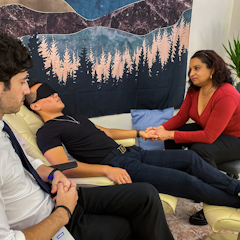
Articles on Genocide
Displaying 21 - 40 of 249 articles

The International Court of Justice has heard arguments from each side of an extraordinary genocide case. What was said, and what happens now?

South Africa’s legal team includes lawyers who previously acted against the government.

Canada doesn’t support the case before the International Court of Justice that Israel is guilty of genocide in its war against Gaza. That’s contrary to its stance on other cases of genocide.

The bill seeks greater intelligence powers but neglects oversight.

Today, hearings will begin in the International Court of Justice, where South Africa is accusing Israel of genocide in Palestine. How will the proceedings work, and what does it mean for the war?

There is precedent showing the ICJ may grant provisional measures within a month or two of the hearing, preventing Israel from causing further harm in Gaza.

While the Genocide Convention has helped raise awareness and prevent ethnic violence from escalating, it has not stopped many accusations of genocides, including violence in Darfur and in Ukraine.

Both Israelis and Palestinians are accusing each other of genocide. In this episode of The Conversation Weekly podcast, we speak to a genocide expert on the legal definition of the term.

New research shows the uncomfortable and shocking truth behind a revered scientist’s reputation.

Clinical psychologist and professor Monnica Williams is on a mission to bring psychedelics to therapists’ offices to help people heal from their racial traumas. To do this, she’s jumping over some big hurdles.

A scholar of Native American and Indigenous rhetorics writes about the harm done to Native American nations through colonization and what can be done to reduce it.

Without independent evidence, the ABC is right not to adopt for itself terms such as ‘genocide’ and ‘apartheid’, but equally it is right to report others making such allegations.

The origins of the Indigenous People’s Thanksgiving Sunrise Ceremony, held on the traditional lands of the Ohlone people, go back to 1969, a pivotal moment of Indigenous activism.

The evidence suggests that atrocities committed against civilians and communities were indeed intended to destroy an identifiable group.

People talk about genocide in a few different ways, ranging from technical to colloquial – but a war of words does not replace a path to peace, a genocide scholar writes.

Children have constant access to media coverage of armed conflicts, terrorist attacks, mass shootings and other brutal acts. This makes it tough for them to develop a sense of hope for the future.

For Jewish people, Hamas’ violence against children was reminiscent of the Holocaust. For Palestinians, The Israel Defense Force’s killing their children reminds them of a painful past, too.

Popular culture often describes scalping − the forceful removing of a person’s scalp − as an indigenous practice. But white settlers accelerated this form of violence against Native Americans.

If Azerbaijan is not punished for its aggression against Nagorno-Karabakh, there’s every chance it will try to capture more Armenian territory.

The author led a search for unmarked graves at the site of Blue Quills, a former residential school. She found more areas of interest (potential graves) than the official record shows.
